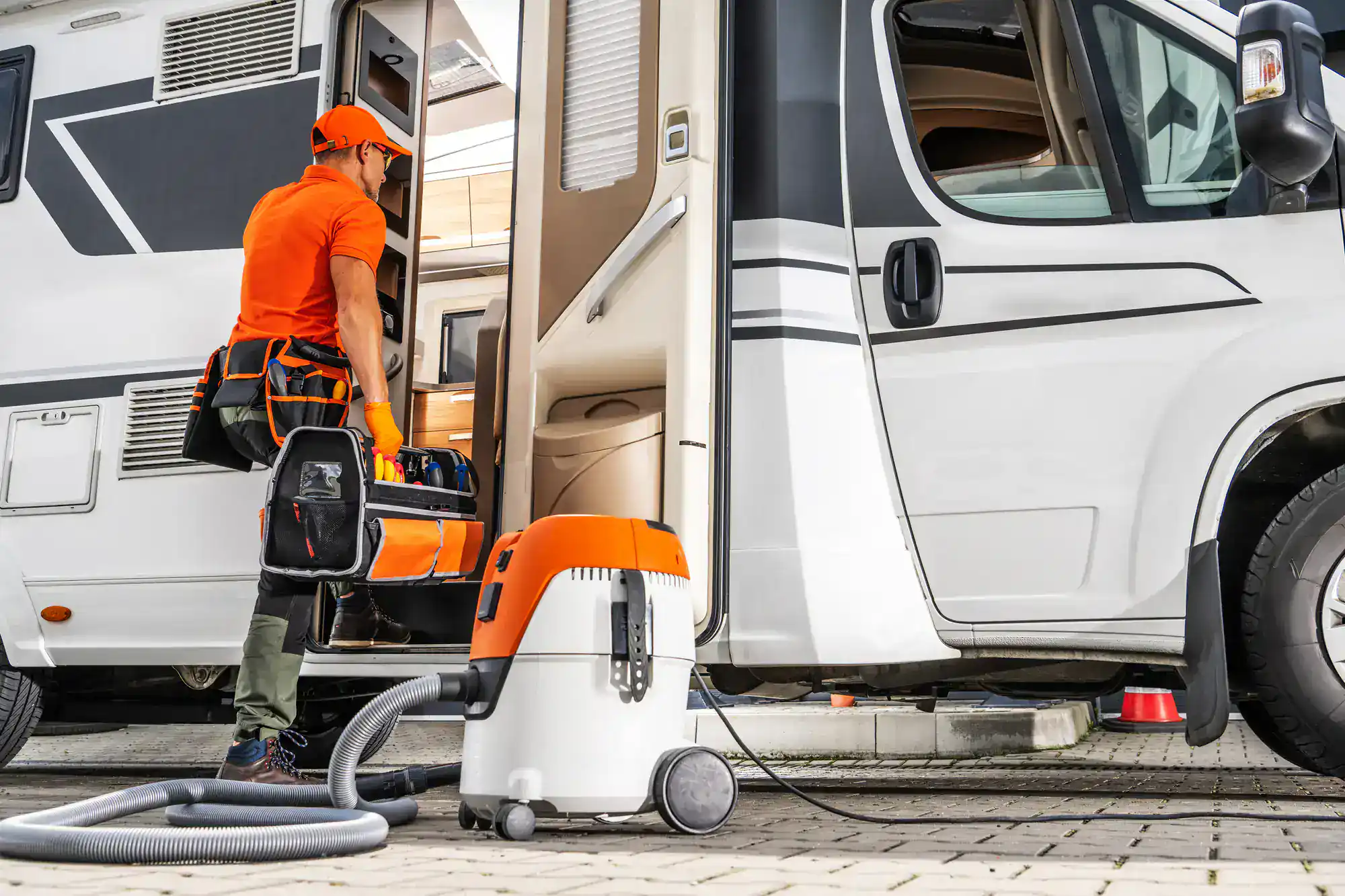
Hear from Our Customers
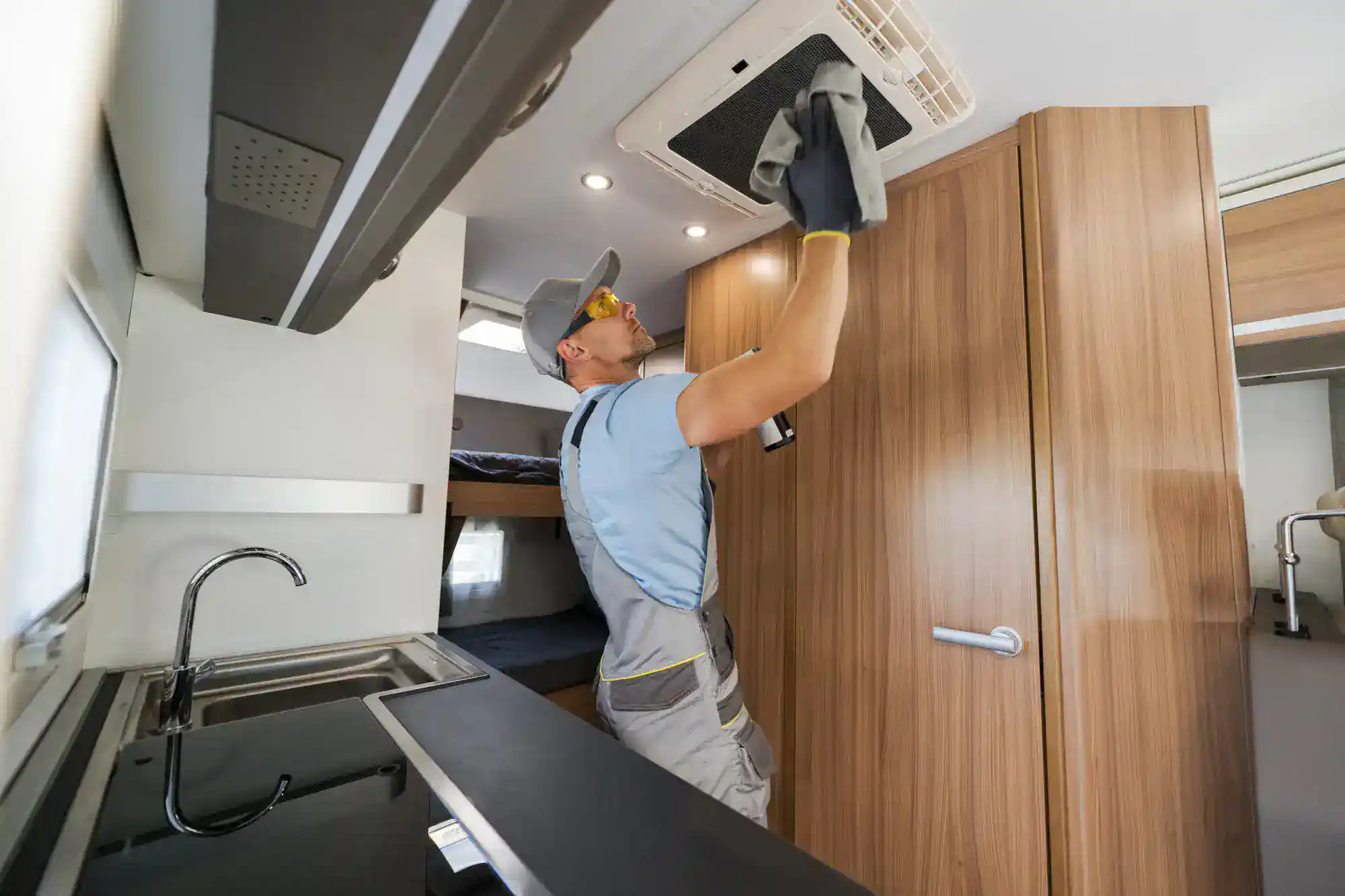
When your RV roof is properly repaired, you get back to enjoying your travels without constantly worrying about the next rainstorm. No more placing buckets around your RV during North Carolina’s unpredictable weather. No more cutting trips short because of leak concerns.
A properly sealed roof means your interior stays dry, your belongings stay protected, and your RV maintains its value. You’ll have confidence whether you’re parked at Jordan Lake or traveling through the Blue Ridge Mountains.
Our repairs handle Lebanon’s climate extremes—from summer heat that reaches the high 90s to winter freezes that can crack inferior sealants. You get lasting protection that stands up to real-world conditions, not temporary fixes that fail when you need them most.
We understand what North Carolina weather does to RV roofs. We’ve seen how the Triangle area’s humidity, sudden thunderstorms, and temperature swings create unique challenges that out-of-state repair shops simply don’t understand.
Our team has been fixing RVs in this region long enough to know which materials hold up and which ones fail. We’ve learned from experience what works in Lebanon’s climate and what doesn’t. That local knowledge saves you money and prevents repeat repairs.
We’re the RV repair shop that RV owners recommend to their friends. Not because we’re the cheapest, but because we’re the ones who get it right the first time. Every repair comes with clear communication, quality workmanship, and the confidence that comes from working with people who actually understand your RV.
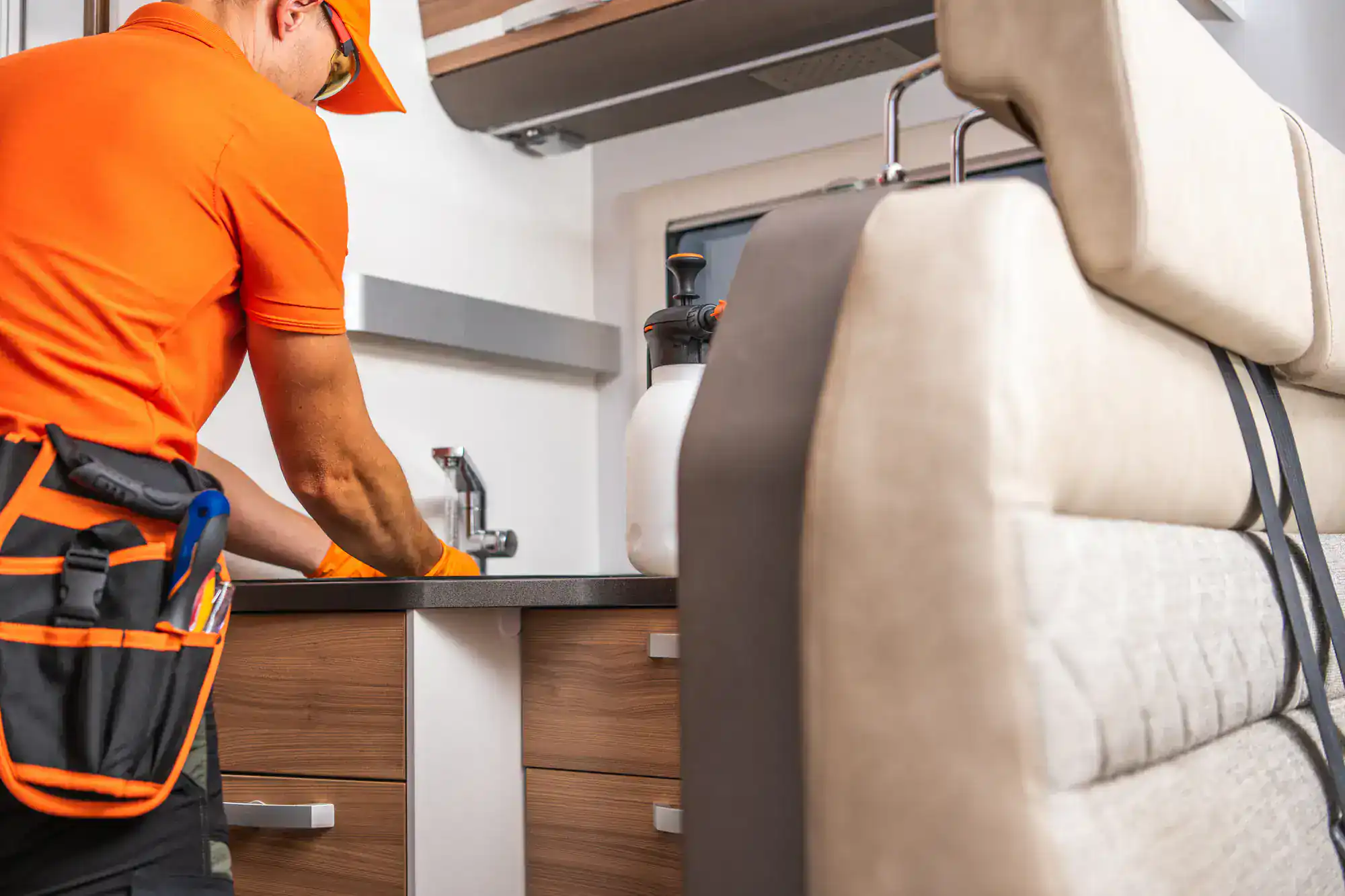
We start with a complete roof inspection, not just the obvious problem areas. Many RV roof issues get misdiagnosed because technicians only address what they can see. We look for the underlying causes that lead to recurring leaks and premature failure.
Next, we explain exactly what we found and why it happened. You’ll understand not just what needs fixing, but what caused the problem in the first place. No technical jargon, no pressure tactics—just clear information so you can make informed decisions.
Our repair work uses materials specifically chosen for North Carolina’s climate conditions. We don’t use generic solutions that might work elsewhere but fail in our humidity and temperature extremes. Every product we apply is selected for long-term performance in this region.
Finally, we show you what we’ve done and explain how to maintain your roof’s condition. You’ll know what to watch for, when to schedule maintenance, and how to spot potential problems before they become expensive repairs.
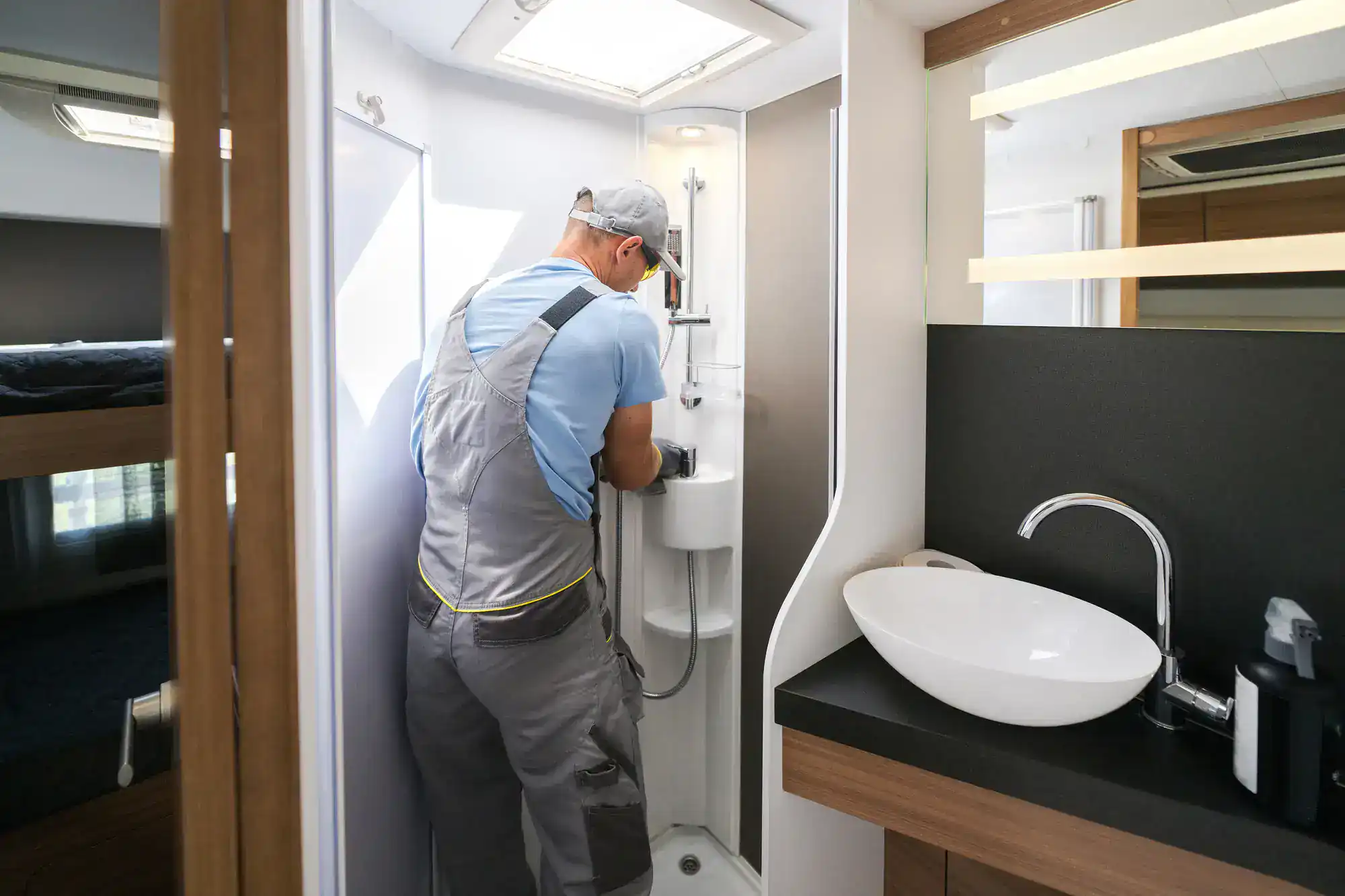
Ready to get started?
We handle every type of RV roof repair, from emergency leak fixes to complete roof replacement systems. Whether you have a travel trailer with a rubber roof or a Class A motorhome with fiberglass, we have the experience and materials to fix it properly.
Lebanon’s location in the Triangle puts RVs through demanding conditions. Summer heat can reach 95°F with high humidity, causing roof materials to expand and contract repeatedly. Winter temperatures drop into the 20s, testing every seal and joint. Spring brings severe thunderstorms with driving rain that finds every weak spot.
Our repair approach accounts for these local conditions. We use UV-resistant sealants that won’t break down in North Carolina sun, flexible materials that handle temperature swings, and application techniques that ensure proper adhesion in our humidity levels.
You get solutions matched to your specific situation—emergency repairs to get you back on the road, preventive maintenance to avoid problems, or complete roof replacement when repair isn’t cost-effective. We’ll recommend what makes sense for your RV and your budget.
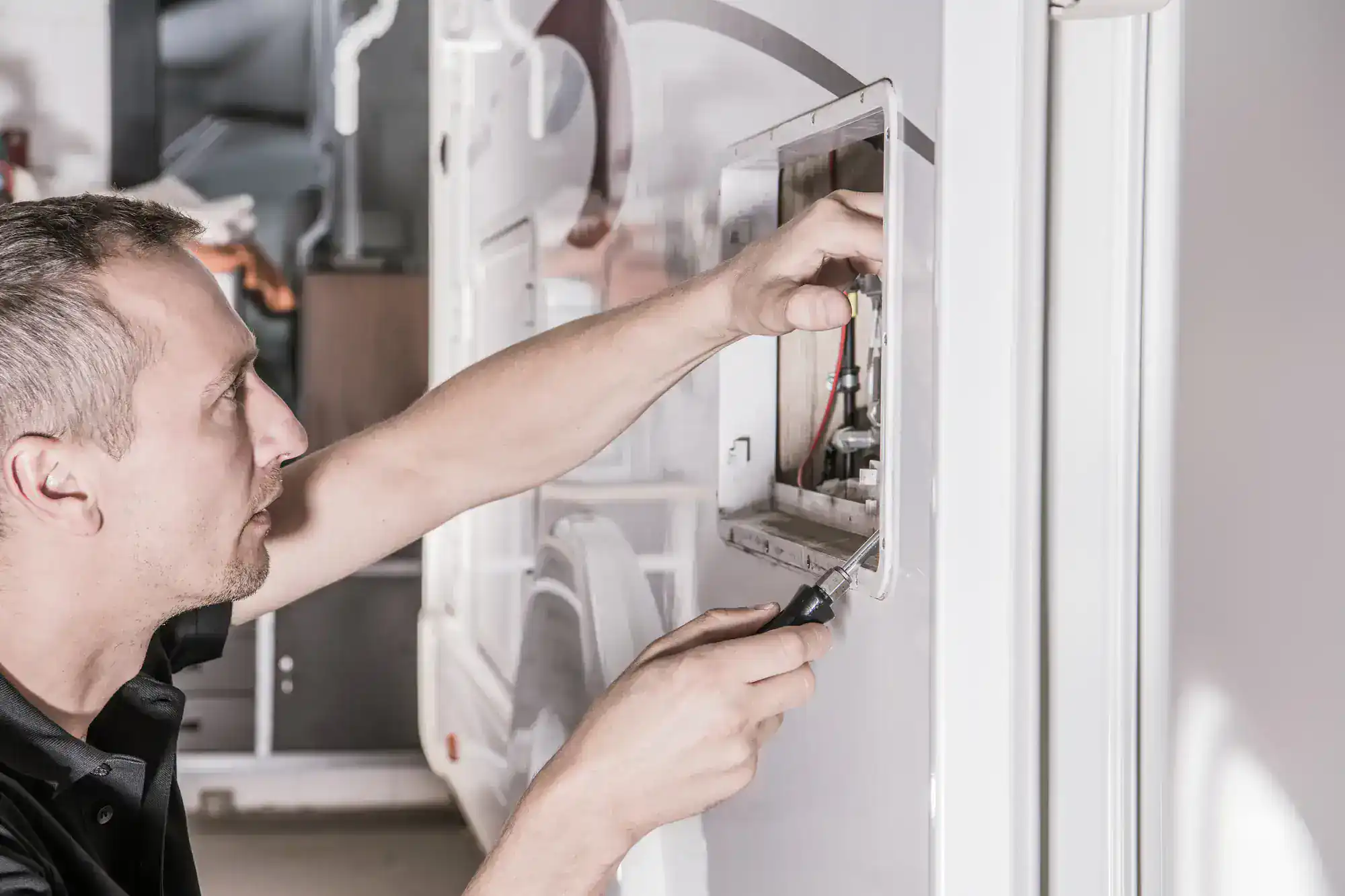
RV roof repair costs depend on the damage extent and repair complexity. Simple leak repairs and resealing typically cost $400-$1,200, while extensive structural repairs range from $2,000-$5,000. Complete roof replacement varies from $3,500 for smaller travel trailers to $8,000+ for large motorhomes.
The key is getting accurate diagnosis upfront. Many roof problems are misdiagnosed, leading to either unnecessary expensive work or cheap fixes that fail quickly. We provide detailed assessments so you understand exactly what your roof needs and what lasting repair will cost.
Factors affecting cost include roof size, material type, accessibility, and extent of water damage. We’ll give you a clear breakdown of costs before starting work, so there are no surprises when the job is complete.
Most standard RV roof repairs take 2-4 days, depending on the work complexity and weather conditions. Simple leak repairs or resealing can often be completed in 1-2 days if conditions are favorable and the roof is properly dry.
Extensive repairs involving structural work, multiple leak areas, or complete roof replacement typically require 4-7 days. We need adequate time for surface preparation, material application, and proper curing—rushing these critical steps leads to premature failure.
North Carolina weather significantly impacts timing. We won’t apply roof coatings or sealants during rain, high humidity above 85%, or temperatures below 50°F because it compromises adhesion and longevity. We’d rather wait for proper conditions than deliver a repair that won’t last.
Interior water stains on walls or ceilings are obvious signs, but by then you may have significant hidden damage. Earlier warning signs include soft spots when walking on your roof, cracked or missing caulk around vents and seams, and roof material that appears to be separating or pulling away.
Look for bubbling or blistering in rubber roofs, which indicates trapped moisture. Check for rust around metal fixtures, discolored areas that suggest water intrusion, and any spots where the roof feels spongy or gives underfoot.
In North Carolina’s humid climate, even small leaks quickly become major problems. Moisture trapped in roof systems leads to mold growth, wood rot, and interior damage that costs far more than addressing roof issues early. Don’t wait for obvious leaks to appear.
Yes, we repair all common RV roof materials including rubber (EPDM and TPO), fiberglass, aluminum, and modified bitumen roofs. Each material requires different repair techniques, compatible products, and specific application methods—experience with various roof types is essential for lasting repairs.
Rubber roofs are most common and generally repairable when proper techniques are used. Fiberglass roofs require specialized knowledge of surface preparation and compatible repair compounds. Metal roofs need attention to thermal expansion and appropriate sealant selection for joint movement.
The critical factor is matching repair methods and materials to your specific roof type, age, and condition. Using incorrect approaches or incompatible products can worsen existing problems. We assess each roof individually and apply proven techniques for that specific application.
Yes, we warranty our workmanship with coverage periods that vary based on repair type and materials used. Standard leak repairs include 12-month workmanship warranties, while extensive repairs using premium materials may include extended coverage up to 24 months.
Our warranties cover the specific repair work performed and materials we install, not pre-existing conditions, normal wear, or damage from external causes. We clearly explain warranty terms before starting work so you understand exactly what protection you receive.
The best warranty is a repair done correctly from the start. We focus on proper diagnosis, quality materials, and correct application because preventing problems is more valuable than fixing them after failure. Our goal is repairs you never have to worry about again.
The decision depends on your roof’s age, overall condition, and current damage extent. Roofs under 10 years old with localized damage are usually good candidates for repair, especially if the underlying structure remains sound.
For roofs over 15 years old with multiple problem areas, extensive soft spots, or significant water damage, replacement often provides better long-term value. Repeatedly patching an aging roof becomes expensive and unreliable—you end up spending more on multiple repairs than a single replacement.
We’ll provide an honest assessment of your roof’s condition and help you understand the true costs of repair versus replacement over the next 5-10 years. Sometimes investing more upfront saves significant money and eliminates ongoing repair headaches.